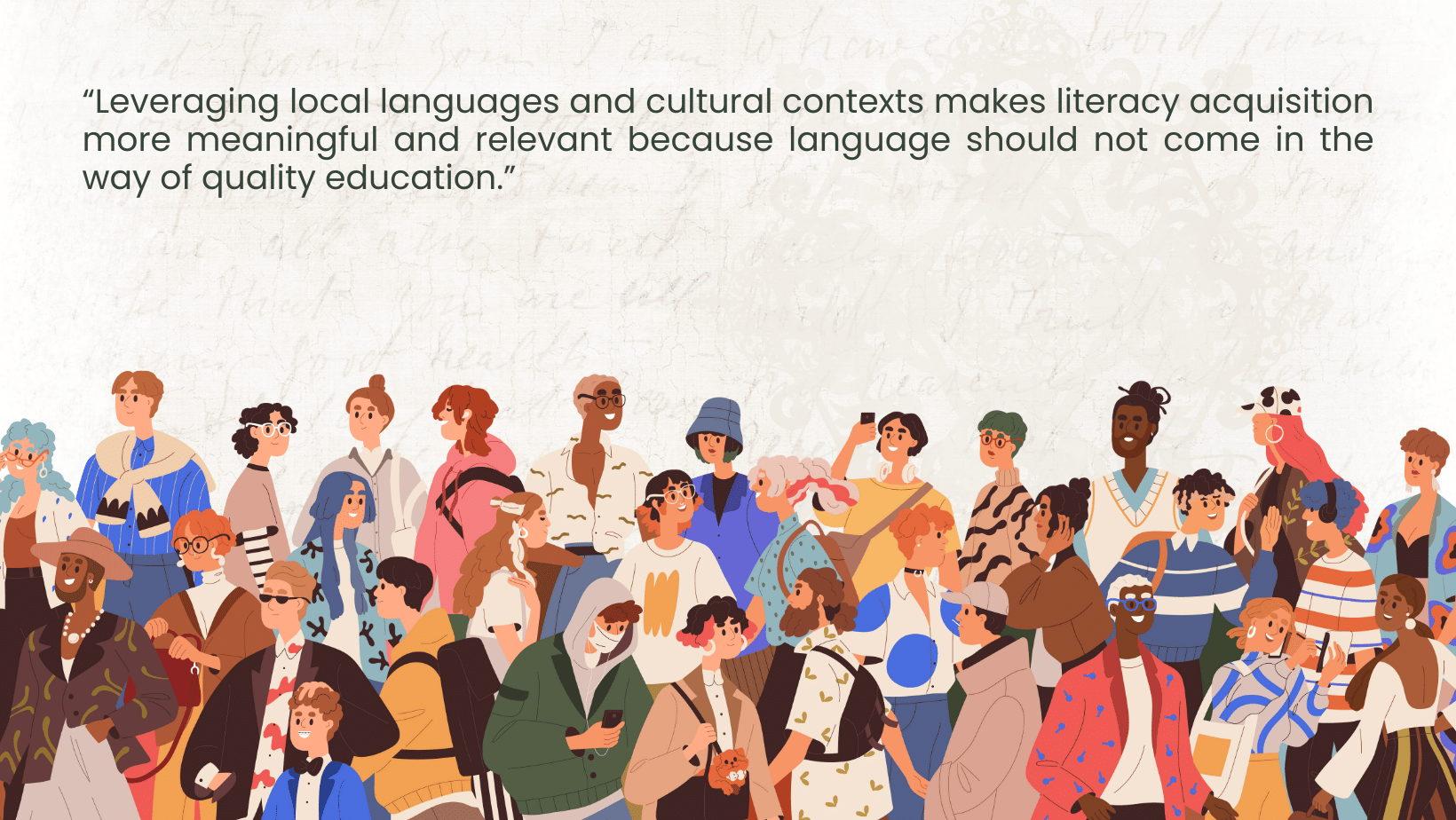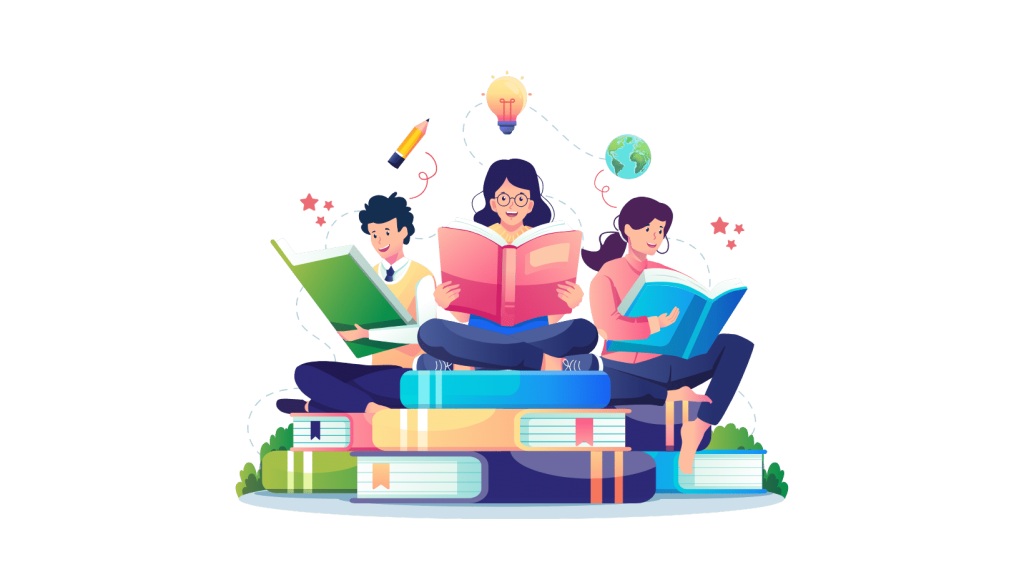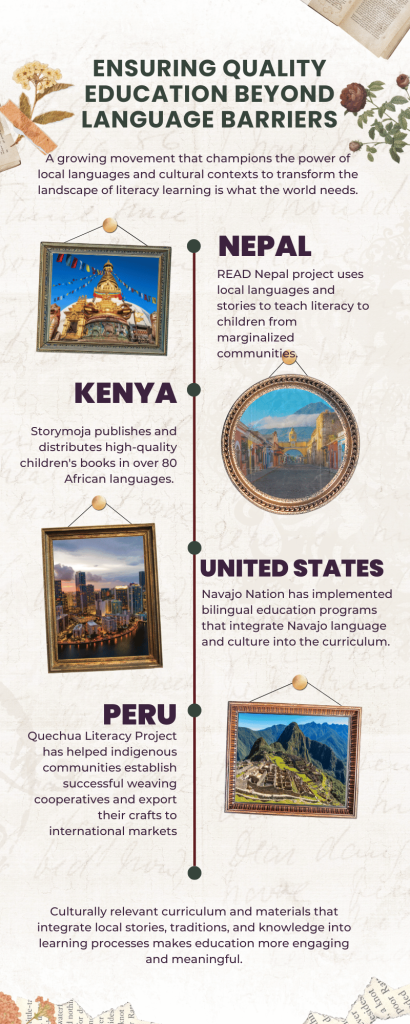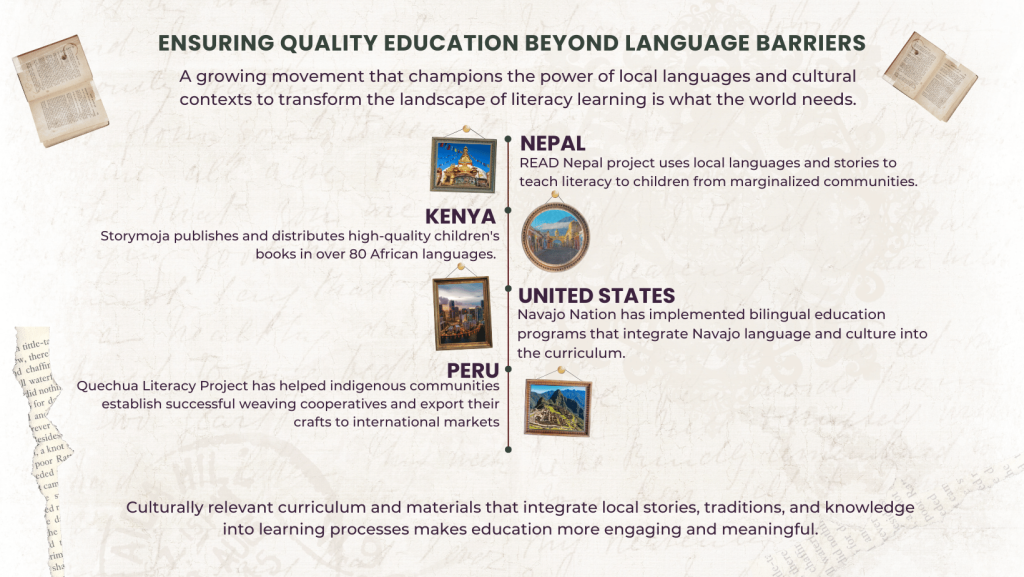
22 Jan Ensuring quality education beyond language barriers
Literacy is a cornerstone of education, a vital tool for knowledge and empowerment. The traditional “one-size-fits-all” approach to literacy often overlooks the richness and potential of diverse languages and cultural lived experiences of people. This can lead to disengagement, confusion, and a sense of alienation for students whose backgrounds are not reflected in the curriculum that are being taught. Studies by UNESCO show that children who learn in their mother tongue achieve better cognitive outcomes and are more likely to stay in school. In this situation, a growing movement that champions the power of local languages and cultural contexts to transform the landscape of literacy learning is what the world needs.

Leveraging local languages and cultural contexts makes literacy acquisition more meaningful and relevant because language should not come in the way of quality education. Education helps individuals to think critically and make informed decisions that improve their well-being and the quality of life. So, education should be available to all, in a way that they can understand and know better.
Research by the World Bank indicates that investing in mother tongue education can significantly boost economic growth and development. Learning in local languages is not just an educational approach, it’s a transformative force that empowers individuals and strengthens communities. By recognizing and integrating local languages into education systems, we can create a better education environment for learners and build a more equitable world where education is accessible to everyone.


Best practices for learning in local languages around the world
- In Nepal, the READ Nepal project uses local languages and stories to teach literacy to children from marginalized communities. The program has seen a dramatic increase in literacy rates and appreciation for local languages and traditions.
- In the United States, the Navajo Nation has implemented bilingual education programs that integrate Navajo language and culture into the curriculum. This has led to improved academic outcomes for Navajo students and a renewed sense of pride in their heritage.
- In Peru, the Quechua Literacy Project has helped indigenous communities establish successful weaving cooperatives and export their crafts to international markets. This has led to increased income generation, improved livelihoods, and empowered local entrepreneurs.
- In Kenya, Storymoja publishes and distributes high-quality children’s books in over 80 African languages. This initiative not only increases access to diverse literature but also empowers communities to preserve their stories and languages. Moreover, Storymoja facilitates workshops and training programs for educators and authors, further strengthening local capacities in literacy development.
These initiatives showcase different approaches to utilizing local languages for literacy and cultural empowerment. They highlight the importance of:
- Culturally relevant curriculum and materials that integrate local stories, traditions, and knowledge into learning processes makes education more engaging and meaningful.
- Community engagement and ownership by training local teachers, involving elders, and collaborating with community organizations fosters sustained initiatives and empowers local voices.
- Promoting economic development by encouraging literacy in local languages can open doors to opportunities like forming cooperatives, accessing markets, and participating in community projects, leading to improved livelihoods and economic autonomy.
By embracing the local languages and cultural contexts, we can make literacy acquisition a journey of discovery and empowerment. A journey where children don’t just learn to read and write, but also learn about their own identities, their communities, and their place in the world. This is not just about education, it’s about building understanding and respect, and creating a future where everyone feels valued and empowered through the power of language.
At Frost and Sullivan Institute, we strongly believe in quality education for all. Literacy should be applicable and accessible to everyone regardless of their culture, geography, or language. We salute the practices adopted by countries to unlock the true potential of literacy, one story, one language, one community at a time.
Blog by Shreya Ghimire,
Research Analyst, Frost & Sullivan Institute


Sorry, the comment form is closed at this time.